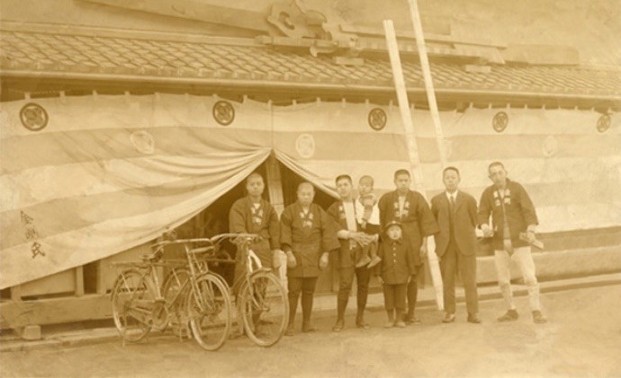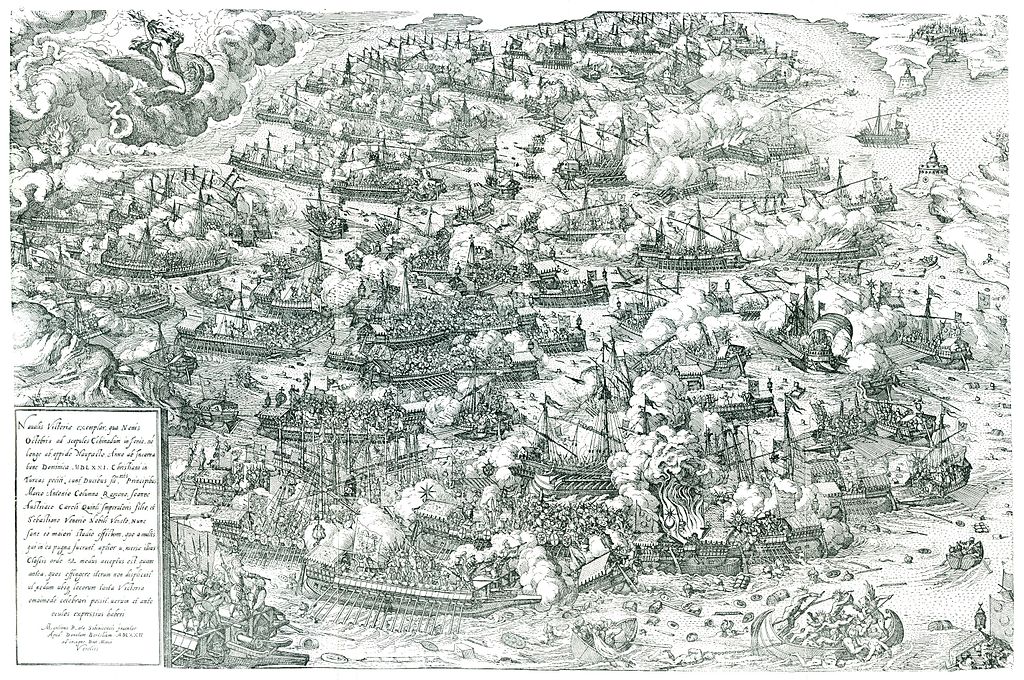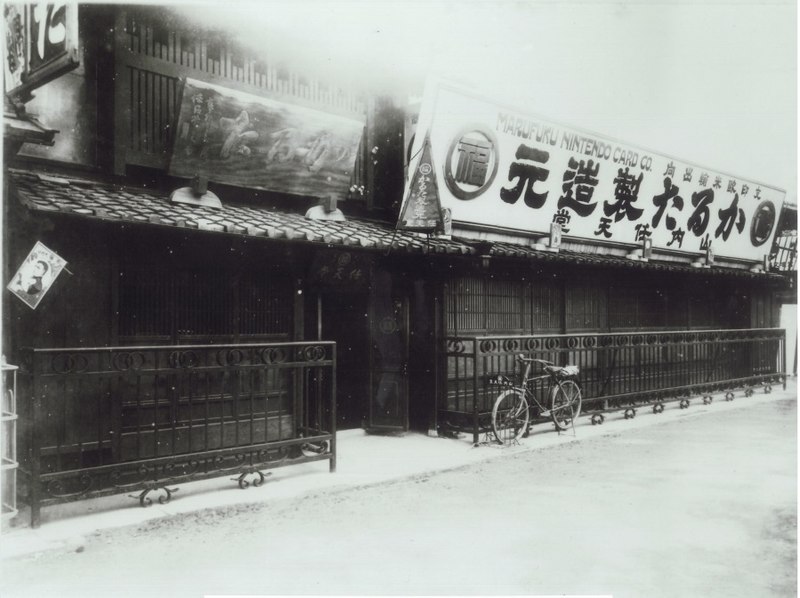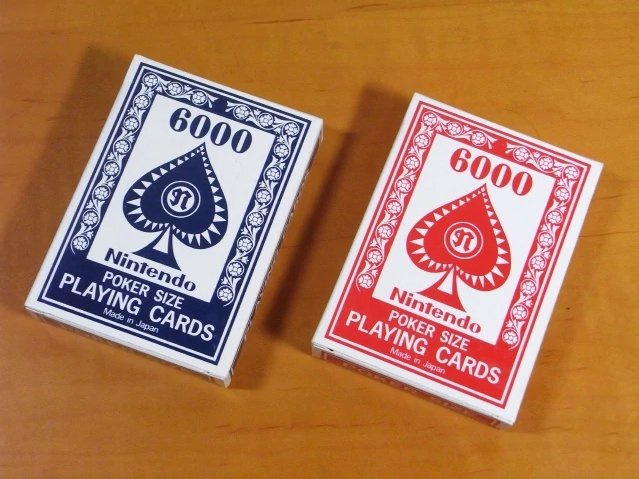So much of the “dream” seems to be to build a startup and sell to a larger strategic/tech company.
If you thought your company might survive a thousand years, what might you do differently?
What would you build if you could hand your stock down to your grandchildren?
/1
If you thought your company might survive a thousand years, what might you do differently?
What would you build if you could hand your stock down to your grandchildren?
/1
VCs make their money by investing in new ventures.
Our skill (if any) is in spotting the arbitrage opportunities between new technologies and mass markets.
But on occasion, it’s worth looking back and seeing what lessons can be learned from companies that have endured.
/2
Our skill (if any) is in spotting the arbitrage opportunities between new technologies and mass markets.
But on occasion, it’s worth looking back and seeing what lessons can be learned from companies that have endured.
/2
The Japanese construction company Kongō Gumi, founded in 578 CE, holds the World Record for being the longest operating business in history. Founded by a Korean immigrant, Shigemitsu Kongō, the company erected Buddhist temples for 1,428 years.
/3
/3
Bartolomeo Beretta bored his first arabesque barrel in 1526. His arms have played a decisive role in conflicts ranging from the Battle of Lepanto in 1571 to the liberation of the Nakatomi Tower in 1988.
/4
/4
Cymbal-maker Ziljan was founded circa 1623, in a city then known as Constantinople. The company has survived four centuries of geopolitical convulsions to become a mainstay in modern cacophonies concocted by artists like the Foo Fighters and Metallica.
/5
/5
Fiskar’s founder Peter Thorwöste received a royal charter to make metal goods from Finland’s abundant iron ore deposits in 1649, though their trademark orange handled scissors didn’t come into being until 1967.
/6
/6
Nintendo, one of the harbingers of our modern virtual existence, pre-dates punch cards and spent a century selling playing cards and toys before establishing the video game product category.
/7
/7
This Wikipedia list of the world’s oldest companies is a fascinating rabbit hole dominated by hotels, restaurants, breweries, and banks, many of which pre-date Æthelstan uniting England.
https://en.wikipedia.org/wiki/List_of_oldest_companies
A">https://en.wikipedia.org/wiki/List... few thoughts:
/8
https://en.wikipedia.org/wiki/List_of_oldest_companies
A">https://en.wikipedia.org/wiki/List... few thoughts:
/8
Tech can be a tool of social mobility
Look at that list & you’ll note most of the companies are reliant on land or a govt monopoly in a given territory. The rentier mindset is real/exclusionary. Tech has the potential to create new opportunities for more people to rise up.
/9
Look at that list & you’ll note most of the companies are reliant on land or a govt monopoly in a given territory. The rentier mindset is real/exclusionary. Tech has the potential to create new opportunities for more people to rise up.
/9
Culture matters
In 2008 there were 5,586 companies older than 200 years which were heavily concentrated in four countries:
56% in https://abs.twimg.com/emoji/v2/... draggable="false" alt="🇯🇵" title="Flagge von Japan" aria-label="Emoji: Flagge von Japan">
https://abs.twimg.com/emoji/v2/... draggable="false" alt="🇯🇵" title="Flagge von Japan" aria-label="Emoji: Flagge von Japan">
15% in https://abs.twimg.com/emoji/v2/... draggable="false" alt="🇩🇪" title="Flagge von Deutschland" aria-label="Emoji: Flagge von Deutschland">
https://abs.twimg.com/emoji/v2/... draggable="false" alt="🇩🇪" title="Flagge von Deutschland" aria-label="Emoji: Flagge von Deutschland">
4% in https://abs.twimg.com/emoji/v2/... draggable="false" alt="🇳🇱" title="Flagge der Niederlande" aria-label="Emoji: Flagge der Niederlande">
https://abs.twimg.com/emoji/v2/... draggable="false" alt="🇳🇱" title="Flagge der Niederlande" aria-label="Emoji: Flagge der Niederlande">
3% in https://abs.twimg.com/emoji/v2/... draggable="false" alt="🇫🇷" title="Flagge von Frankreich" aria-label="Emoji: Flagge von Frankreich">
https://abs.twimg.com/emoji/v2/... draggable="false" alt="🇫🇷" title="Flagge von Frankreich" aria-label="Emoji: Flagge von Frankreich">
Laws and norms shape our commercial culture, and they should be carefully considered.
/10
In 2008 there were 5,586 companies older than 200 years which were heavily concentrated in four countries:
56% in
15% in
4% in
3% in
Laws and norms shape our commercial culture, and they should be carefully considered.
/10
Product/Market Fit can take .... centuries
Nintendo spent a century building domain expertise before inventing the product we most associate with it.
Work at it always but don’t feel bad if it takes you a little longer to dial-in your product offering.
/11
Nintendo spent a century building domain expertise before inventing the product we most associate with it.
Work at it always but don’t feel bad if it takes you a little longer to dial-in your product offering.
/11
The longest journey begins with a single step
These businesses didn’t start with a top-down vision. There were no grand plans for centuries of success drawn up on day one. Instead, they hustled for dollars and compounded the advantages they accrued for decades at a time.
/12
These businesses didn’t start with a top-down vision. There were no grand plans for centuries of success drawn up on day one. Instead, they hustled for dollars and compounded the advantages they accrued for decades at a time.
/12
There has been an increasing intellectualization and financing-centric view of startups in recent decades.
Still, these examples show that entrepreneurship is an intrinsic part of the human spirit – in good times and bad:
https://twitter.com/dafrankel/status/1275519733056536576
/13">https://twitter.com/dafrankel...
Still, these examples show that entrepreneurship is an intrinsic part of the human spirit – in good times and bad:
https://twitter.com/dafrankel/status/1275519733056536576
/13">https://twitter.com/dafrankel...
Many companies on the Wikipedia list pre-date the Magna Carta, the Song Dynasty, and the Mughal Empire. Some will outlast our current political arrangements.
When considering your startup’s long term prospects, try to perhaps consider that grander time scale if you can.
/14
When considering your startup’s long term prospects, try to perhaps consider that grander time scale if you can.
/14
Never be self-indulgent - you first need to hit payroll at the end of the month.
But don’t wait until retirement age to consider your legacy either.
If nothing else, thinking about your startup in a dramatically different context may hopefully spur some new ideas.
/End
But don’t wait until retirement age to consider your legacy either.
If nothing else, thinking about your startup in a dramatically different context may hopefully spur some new ideas.
/End

 Read on Twitter
Read on Twitter










